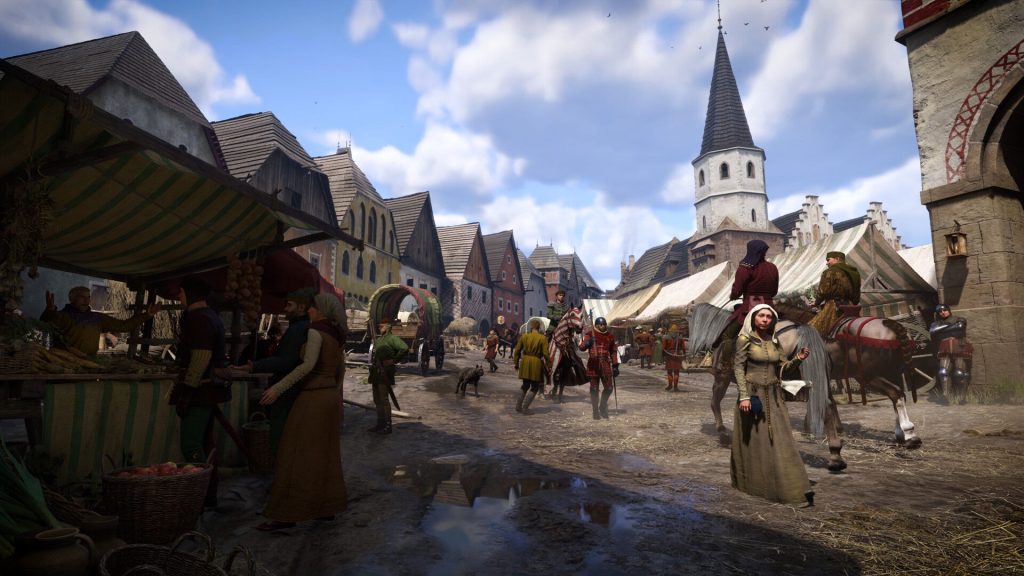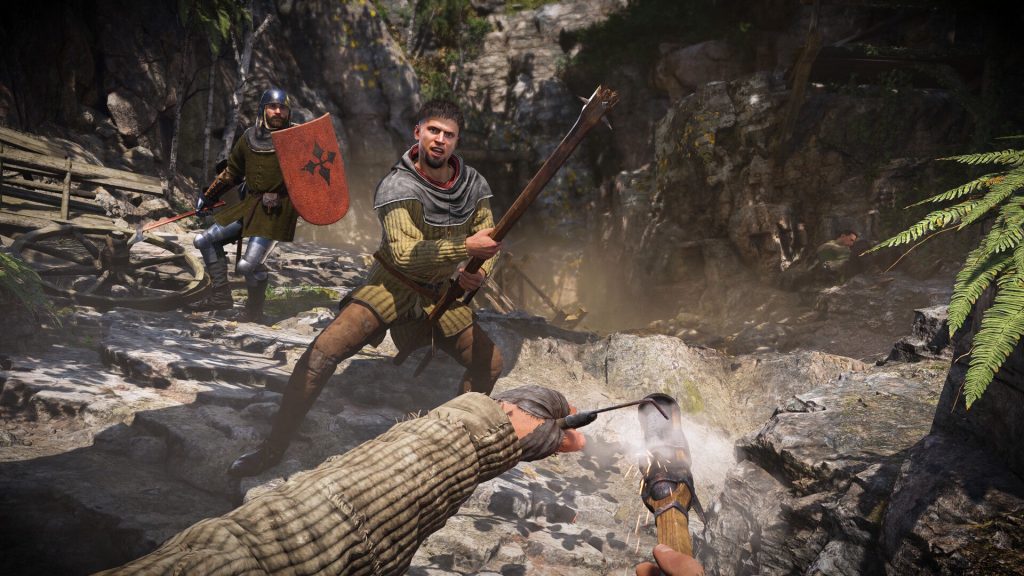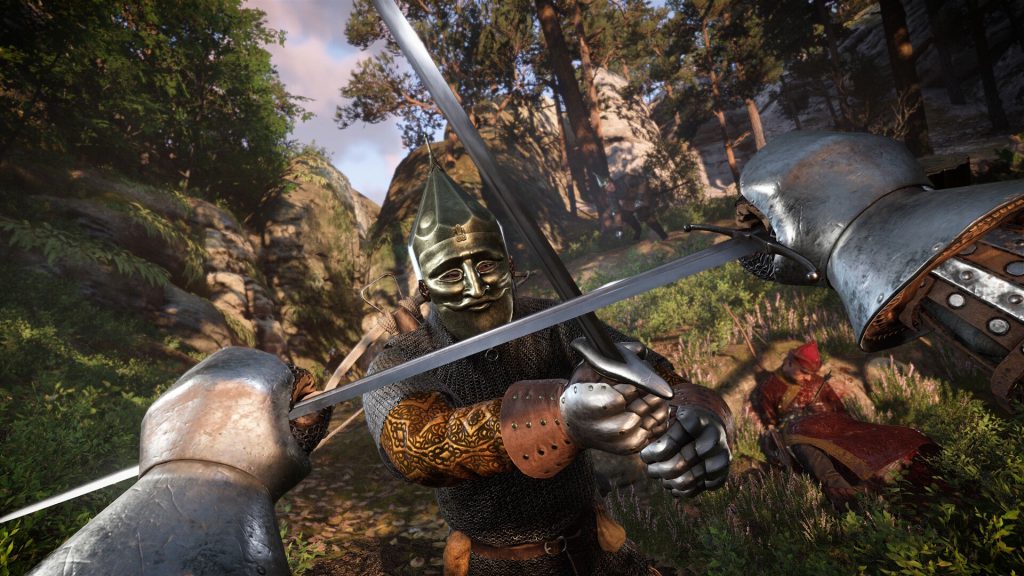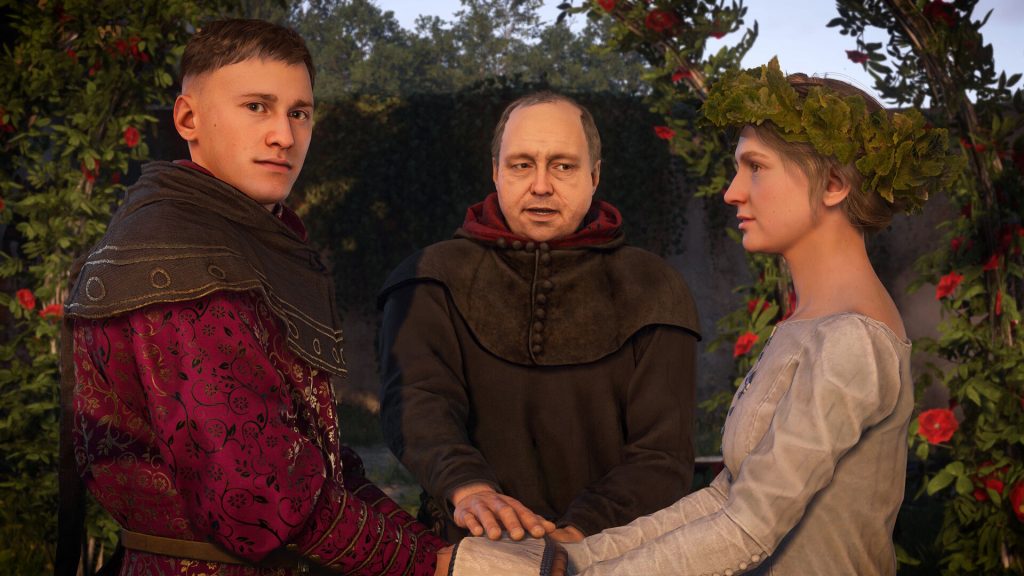From the very first installment, Kingdom Come: Deliverance made it clear that it was targeting the so-called “Old School” RPG audience—those who are willing to forsake modern gaming simplifications in favor of deeper immersion. Despite the game’s limited development budget, technical issues, and shortcomings in key areas such as resolution, which are crucial to players, the final product ultimately led to a resounding success.
Before Diving into the Main Discussion…

Market analysts in the gaming industry have reported in recent years that most gamers seek simplified mechanics and systems in games, and publishers, influenced by these reports, have made this a priority in their development strategies. These reports aren’t necessarily inaccurate; in fact, it’s reasonable to assume that the majority of gamers, aside from the so-called ‘hardcore’ minority, are looking for exactly this.”
However, the question arises: Is commercial success solely dependent on this trend? Are studios doomed to fail if they don’t follow these reports?”
The answer, given the success of several masterpiece titles released in recent years, is simply no. Excessive and superficial simplification, particularly in a genre like RPGs, could even lead to the downfall of game studios.
Story and Atmosphere of Kingdom Come: Deliverance 2

The story of Kingdom Come: Deliverance 2 picks up right where the first game left off. Our kind-hearted protagonist, Henry, along with the reckless noble Hans, is tasked with delivering an important letter to Otto von Bergow to spark peace negotiations. However, despite the gravity of their mission, Hans and Henry succumb to the thrill of youth, and nothing goes as planned.
From here, Henry must rely on the moral lessons he learned from his blacksmith father to navigate the chaos and help Hans fulfill his duties. In this second installment, Henry is far more seasoned—still young and prone to whims, but thanks to his upbringing and his interactions with figures like Godwin, he has developed a strong sense of responsibility. Don’t overlook this aspect of his character. Henry is a compelling protagonist: easy to relate to, yet truly worthy of being an inspiring figure. He possesses an undeniable strength of character. During the game, when I found Henry in difficult situations—even ones that didn’t seem tough at first—I often thought, becoming someone like Henry is no easy feat. I even felt a sense of pride for him. This unique aspect of Henry’s character and the way it is depicted make him a standout protagonist, one that you won’t easily find in other games. If you’re deeply invested in RPGs, you’ll recognize the value of this.
While Kingdom Come: Deliverance 2 employs similar narrative tools to the first game, its execution is vastly superior. The synopsis is intriguing, but if it hadn’t been conveyed effectively, it wouldn’t have meant much. The direction and production quality of the cutscenes and cinematics are top-tier. The game doesn’t aim for European arthouse cinema; instead, it delivers polished, engaging storytelling reminiscent of high-quality blockbuster films—the kind that keep you glued to the screen for hours.
“Henry, Godwin, Žižka, and Hans are trapped within a fortified stronghold. Through the narrow tower windows, they can see the enemy forces in all their imposing grandeur. Hans notices movement at the front lines—soldiers pushing forward a weapon, a war cannon. In the tower, Godwin, who has survived great battles against the Ottomans, immediately grasps the gravity of the situation. He begins praying in Latin. His voice becomes the backdrop as the others are shown, paralyzed with fear. Outside the fortress, the cannon is prepped for firing. Silence. A close-up of Godwin’s upward gaze: ‘Deliver us from evil.’ He closes his eyes and—BOOM!
This cinematic is one of the finest in the game, though throughout the 120-hour experience, I witnessed many such breathtaking moments.
Gameplay in Kingdom Come: Deliverance 2

Just like all the advancements made in this sequel, the gameplay has become more refined, engaging, and immersive. Some of these changes involve trimming unnecessary elements from the first game—such as reducing the attack directions from five to four. While this maintains the depth and strategy of the combat system, removing one direction has actually improved player control over battles. This allows for a more strategic engagement with combat, ultimately making the system even deeper.
Defensive mechanics have also been enhanced, particularly when Henry finds himself surrounded by multiple enemies. In the first game, these scenarios could be frustrating, but in Kingdom Come Deliverance 2, they have been transformed into some of the most exciting combat sequences in the game. Additionally, by the later stages of the game, as Henry levels up, the player can truly feel the progression of their character.
One of the most notable refinements in the game revolves around stealth. The stealth mechanics have been deepened through refined systems and the addition of specialized perks. The developers have also included sections that strongly emphasize stealth, seamlessly integrating it into the overall gameplay. These levels significantly enhance the immersive sim experience. The Von Bergau Castle level is a perfect example of this. With its expansive design, multiple routes, and numerous ways to complete objectives, it delivers a true immersive sim experience.
This brings us to an important aspect of the game’s RPG mechanics. By the time players reach the Von Bergow Castle level, they will have spent around 10 to 20 hours in the game, shaping Henry’s abilities based on their playstyle. This concept of varied builds is a fundamental part of RPGs, but what truly determines their quality and depth is how distinct they feel. In Kingdom Come: Deliverance 2, different builds provide unique gameplay experiences. I focused on charisma and resolving conflicts through dialogue. My role-playing goal was to be a “good guy”—I avoided stealing and always followed the law. As a result, by the time I reached the castle level, I had virtually no stealth abilities. The difference between my experience and that of a player who specialized in stealth was immediately clear. Some challenges were easier for me, while others proved tougher.
Ultimately, this variation in gameplay ensures that certain sections feel uniquely exciting for different players. However, this system would fall apart without proper balance in level design. Thankfully, Kingdom Come: Deliverance 2 excels in maintaining this balance.
Main and Side Quest Design in Kingdom Come: Deliverance 2

One of the most crucial elements of any RPG is quest design. The vast world of Kingdom Come Deliverance 2 is filled with both small and large villages, each vibrant and alive in its own way. In these villages, as well as in the great city of Kuttenberg, NPCs follow their unique daily routines. Beyond the game’s impressive AI that breathes life into its citizens, some of these characters face personal troubles that require your help to solve—small stories that enrich your experience. These tales, beyond their gameplay function, delicately immerse the player in the historical setting, shedding light on the mindset of the people, their religious beliefs, and the superstitions that influenced their lives. Each quest touches upon a different theme, offering not just engaging narratives but also valuable insights for the player.
The city of Kuttenberg is undoubtedly one of the game’s highlights—a sprawling urban hub brimming with opportunities. From assisting a woman in launching her bathhouse to joining the Kuttenberg Swordfighters’ Guild or even playing the role of a Robin Hood-like figure for an ideological faction, there is no shortage of meaningful interactions. Each gaming session in Kingdom Come effortlessly transforms into a long, satisfying experience simply because every quest and event is designed with depth and purpose.
Verdict
Kingdom Come Deliverance 2 stands as one of the most engaging and authentic RPG experiences in recent years, right alongside titles like Baldur’s Gate 3. While it may not be an absolute masterpiece, the gap is razor-thin. As a meticulously crafted sequel, it refines its mechanics and systems while introducing new elements that further enrich the promised experience. If you’re an RPG enthusiast, do yourself a favor and play Kingdom Come Deliverance 2.








